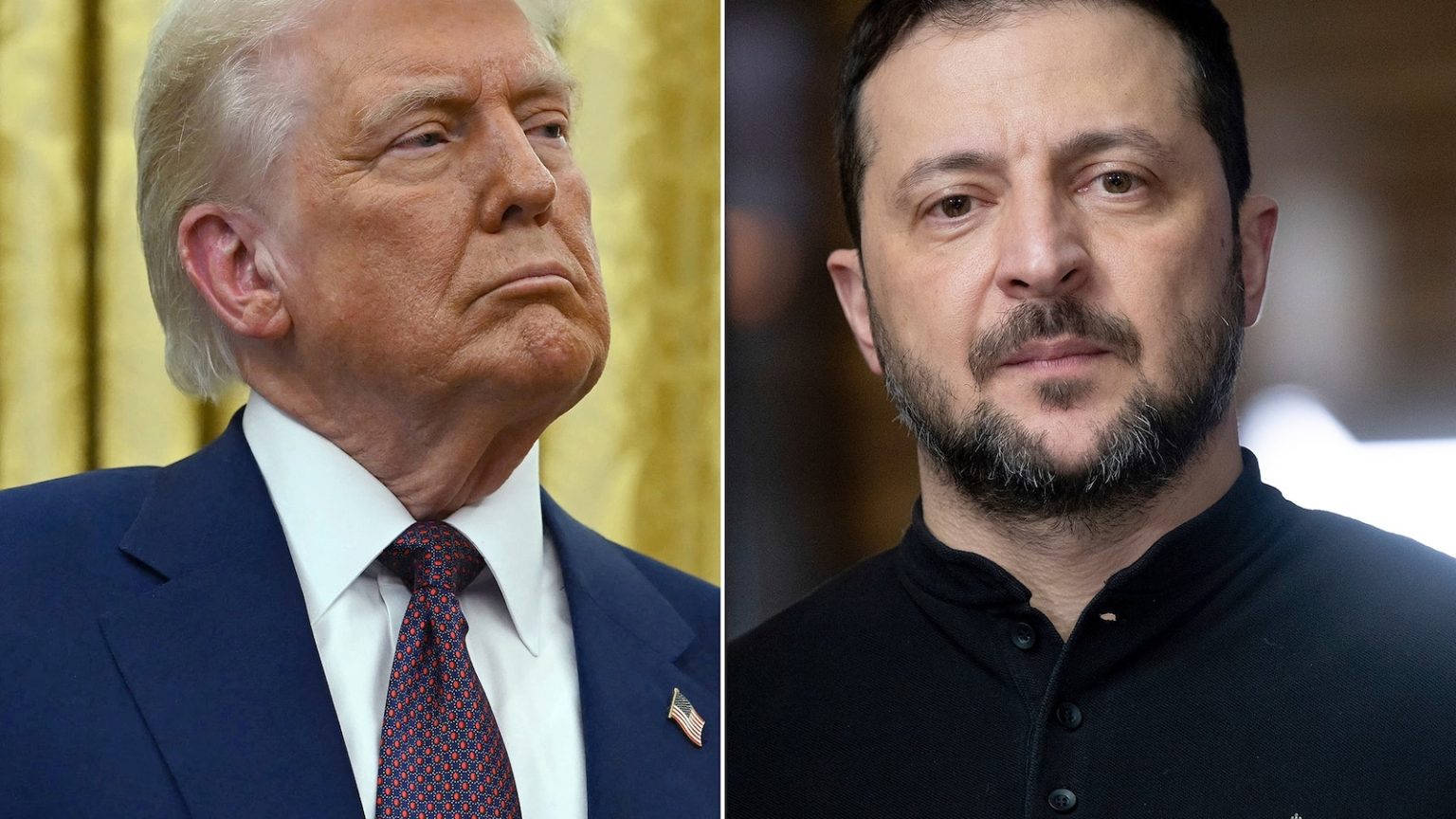A New Deal on the Table: Ukraine and the U.S. Navigate Resource Revenue Agreement
Introduction: A Delicate Negotiation Amidst Crisis
The relationship between Ukraine and the United States has reached a critical juncture, as both nations negotiate a controversial agreement over Ukraine’s most valuable resources. According to a Ukrainian official, President Volodymyr Zelenskyy’s team is currently working on an updated version of a deal proposed by the U.S., which would require Ukraine to hand over a significant portion of its revenue from key resources, including minerals, oil, gas, and ports. This proposal, initially drafted during the Trump administration, has sparked intense debate, with critics accusing the U.S. of attempting to strong-arm Ukraine into an exploitative arrangement. The negotiations come at a fraught time, as Ukraine battles to defend itself against Russia’s ongoing invasion, now nearing its third year.
The Proposal: A 50% Revenue Share for the U.S.
The initial draft of the agreement, obtained by ABC News, outlines a U.S. request for 50% of Ukraine’s revenue from its natural resources. The document, dated February 7, specifies that this share would apply to “mineral resources, oil and gas resources, ports, and other infrastructure (as agreed).” A U.S. official confirmed that this aligns with the Trump administration’s opening proposal, which was presented to Zelenskyy’s team with little warning during U.S. Treasury Secretary Scott Bessent’s visit to Kyiv on February 12. Ukrainian officials have expressed outrage over the proposal, describing it as one-sided and exploitative, with no mention of future security guarantees for Ukraine in exchange for the resource revenues.
Zelenskyy’s Stance: “I Can’t Sell the Country Off”
President Zelenskyy has firmly rejected the initial terms of the deal, emphasizing that he cannot compromise Ukraine’s sovereignty for financial gain. During a press conference, Zelenskyy stated, “I told them to show the security guarantees, and then we talk about the percentage. They said 50%, and I replied NO. I can’t sell the country off. I’m just a manager. Tomorrow, the country will have another manager, so I can’t sell it.” He also highlighted the practical challenges of the proposal, noting that approximately 20% of Ukraine’s resources are located in Russian-occupied territories, making them inaccessible. Zelenskyy’s refusal has led to a tense back-and-forth with the Trump administration, with President Trump publicly lambasting the Ukrainian leader as a “dictator” and questioning his legitimacy—a rhetoric eerily reminiscent of Russian President Vladimir Putin’s talking points.
Trump’s Reaction: Frustration and Disinformation
The Trump administration has escalated its criticism of Zelenskyy following his refusal to sign the initial agreement. President Trump has accused Zelenskyy of treating U.S. officials poorly, even claiming without evidence that the Ukrainian leader kept Treasury Secretary Bessent waiting during their meeting because he was “sleeping.” Trump’s National Security Advisor, Michael Waltz, echoed this frustration, stating, “President Trump is obviously very frustrated right now with President Zelenskyy. The fact that he hasn’t come to the table, that he hasn’t been willing to take this opportunity that we have offered. I think he eventually will get to that point, and I hope so very quickly.” Waltz framed the deal as a “historic opportunity” for Ukraine, arguing that U.S. investment in Ukraine’s prosperity would guarantee long-term security.
The Broader Implications: U.S.-Ukraine Relations at Risk
The tensions over the resource deal have cast a shadow over the already strained relationship between the U.S. and Ukraine. Critics argue that the Trump administration’s approach undermines Ukraine’s sovereignty and ignores the sacrifices it has made in its fight against Russian aggression. Zelenskyy has struck a balance in his response, acknowledging U.S. support while firmly rejecting terms he views as unacceptable. “I believe [Trump] is living in a disinformation space,” Zelenskyy remarked, signaling his determination to maintain Ukraine’s independence. The dispute has also raised questions about the long-term security guarantees Ukraine can expect from its Western allies, as it continues to rely heavily on international aid to sustain its resistance against Russia.
Ongoing Negotiations: A Path Forward?
Despite the setbacks, negotiations between the two nations continue. Following Zelenskyy’s refusal to sign the initial agreement, his team is now working on an updated version of the deal. A Ukrainian official confirmed that these efforts are ongoing, with discussions resuming during a meeting between Zelenskyy and Trump’s Special Envoy to Ukraine, retired Gen. Keith Kellogg, in Kyiv on February 16. The exact terms of the revised agreement remain unclear, but Ukrainian officials are hopeful that a more balanced and equitable deal can be reached—one that respects Ukraine’s sovereignty while addressing U.S. interests. As the negotiations unfold, the stakes remain high, with Ukraine’s future prosperity and security hanging in the balance.
In conclusion, the proposed resource revenue agreement between Ukraine and the U.S. has opened a Pandora’s box of challenges, highlighting the delicate balance of power, sovereignty, and mutual interests in international relations. While the Trump administration frames the deal as a historic opportunity for Ukraine, Zelenskyy’s refusal to compromise on his nation’s sovereignty underscores the need for a more equitable and sustainable partnership—one that prioritizes Ukraine’s long-term security and prosperity over short-term gains.















